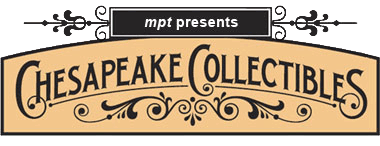Why should I retain an appraiser when an auctioneer will do the same thing for free?
While it is true that an auctioneer will sometimes offer prospective clients free “pre-bid estimates” for objects sold through the auctioneer’s establishment, an auction estimate is not an appraisal. A qualified appraisal prepared by an accredited and experienced personal property appraiser is an unbiased opinion of value. An appraisal is based on fact rather than guesswork, and it is prepared by a compensated professional who has no vested interest in the property being appraised.
Appraisers are expected to perform valuation services competently and in a manner that is independent, impartial and objective. Appraisers are bound by a code of ethics that prevents them from acting as client advocates. In other words, an appraiser cannot take sides or report predetermined value conclusions merely to please a client. Appraisers must report their findings in a balanced, accurate and truthful manner. Most importantly, professional appraisers cannot accept assignments, or be a party to a compensation agreement for an assignment, that is contingent on the amount of a value opinion or assignment outcome.
This is what separates the appraisal profession from the auction industry. While it is common practice for auctioneers to base their compensation on a percentage of a sale, an appraiser does not and cannot work that way. An appraiser cannot appraise “high” for insurance purposes, appraise “low” for estate tax purposes and then charge the client a percentage of the valuation. While it is perfectly acceptable for an auctioneer to arbitrarily inflate or deflate a presale estimate to stimulate interest in an upcoming sale, it is unethical for an appraiser to knowingly skew assignment results for a client’s benefit.
In short, an auctioneer is a commissioned sales person who offers “estimates” of what an object will sell for at their particular establishment. An appraiser offers unbiased opinions of value based on fact.








